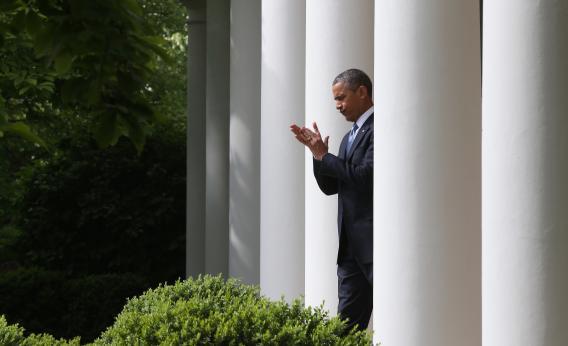This question originally appeared on Quora.
Answer by John DeMarchi:
Every president has faced these false and ridiculous accusations.
Examples—off the top of my head—of crazy talk throughout American history: George Washington was derided as despotic; Abraham Lincoln was an ape, the devil himself during the Civil War; Woodrow Wilson wanted to subvert American freedom for a world government; FDR was reviled as a socialist; JFK was a Catholic who wanted to subvert America to Vatican guidance; Jimmy Carter was an appeaser; Reagan a Soviet-obsessed war-mongerer, hell-bent on accelerating Armageddon with the “evil empire” of the USSR; Bill Clinton an architect of America’s moral depravity and slouching toward Gomorrah; George W. Bush was a simpleton, hell-bent on destroying America by imperial overreach in foreign lands; and so on.
It’s tough to be president—typically about 40 percent of the people don’t like you, or your policies, or both. Have fun!
So this is not new at all. Every president, of every party, has always faced partisan criticism. And also: Every president has faced fair criticism from nonpartisans, because, let’s face it, no person or president is perfect.
What IS new is that, thanks to technology, and especially social media, every person is now a potential publisher. Thus the amount of data criticizing the president —and supporting him as well—is truly unprecedented.
Keep in mind, more data has been produced in the last three years globally than in all of recorded human history before then. This isn’t a Gutenberg Bible sized publishing revolution; this is Gutenberg on HGH. The most common critique of President Obama is economic—and before folks get angry, let’s just agree that some people like what he’s doing, and some others do not.
That isn’t racism. (Although I will cede that there are, sadly, still a few cro-magnon racists in our midst here in the USA).
It is politics.
The economic critique of President Obama is simple: He’s making major bets that increasing the size of government (now 25 percent of GDP) and piling on new debt ($8 trillion plus expected in eight years, more than any president in the history of the republic) will cut unemployment and spur growth via alleged Keynesian multipliers, won’t trigger inflationary pressures that would disproportionately hammer the poor, children and elderly, and won’t crush the dollar as a fiat currency, in a way that triggers blowback from international bond vigilantes that jacks interest rates and makes America’s national debt totally unsustainable.
Is the president right or wrong?
The jury is still out of all of this, even ceding that the president inherited an economic crisis of unusual proportions in 2008.
And the GOP hardly has covered itself in glory, either: $3.3 trillion in new debt during eight years of GWB being “Exhibit A” in that case.
The president may be right. His economic policies may work. Or perhaps, he may be right that an expanded government is actually net beneficial to an America in which the rich/poor gap has been increasing rapidly. We’ll see.
It’s clear the President Obama, for better or worse, views government as a vehicle for social justice and wealth reallocation; for him, everything revolves around government, not the private sector.
Some see that as “destroying” America.
Notably, slightly more than 50 percent of voters disagreed; President Obama was re-elected.
One final note: Please indulge me.
President Obama, as President Bush before him, tends to govern as if he won 100 percent of the vote; the country is still very much split 51-49 or 52-48.
That’s awesome politics—and it is undeniably effective. Heck, Bush engaged the U.S. abroad in two wars; Mr. Obama rammed through Obamacare; like or hate either man, they pushed through some pretty big things.
But awesome politics makes for terrible friendship and lousy unity.
The politically dispossessed get angry—and rancorous positions become ever-more entrenched. That’s not necessarily good or bad; it just is.
And it is where America sits today—a very much divided nation.
A great former president once cautioned that a house like that cannot stand.
Let’s hope Mr. Lincoln was wrong—or hope that we come together.
But to wrap up: President Obama is not the first president to hear such criticism, and he surely will not be the last, either.
More questions on U.S. politics:
- Do Americans actually support Democrats or Republicans, or are they just afraid to criticize them in public?
- Which U.S. Supreme Court decisions have been generally recognized as being poor legal decisions?
- Was it sexist of President Obama to describe California Attorney General Kamala Harris as “…by far, the best looking attorney general in the country”?
